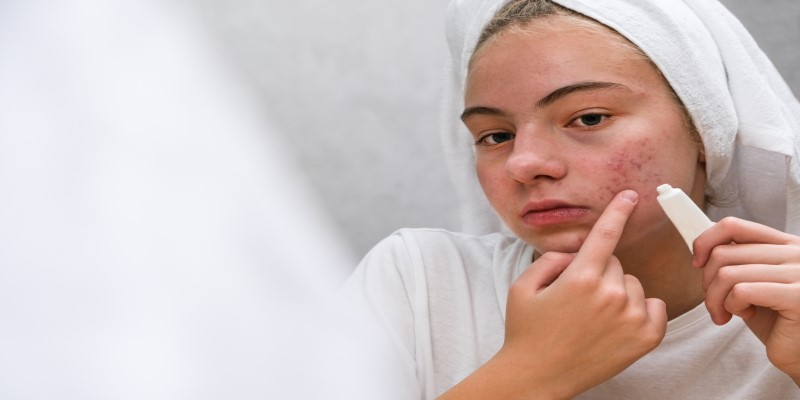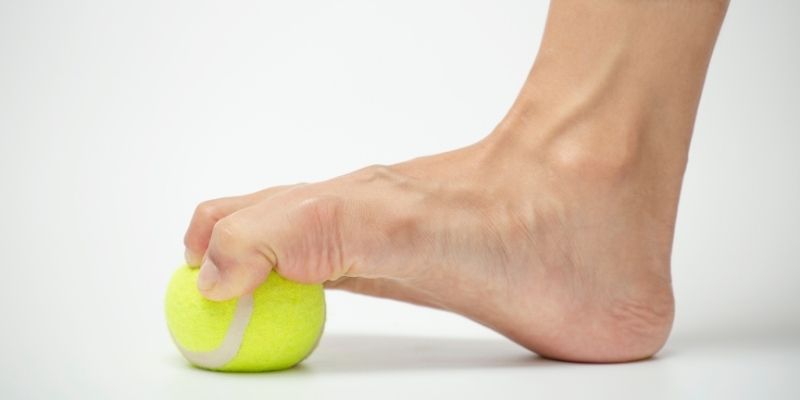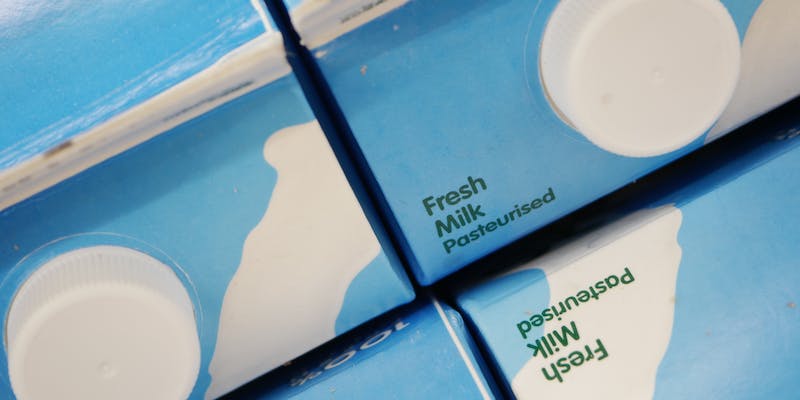Debunking Myths: Why Using Toothpaste for Acne is a Bad Idea
Feb 11, 2024 By Nancy Miller
Are you grappling with persistent acne and contemplating the use of toothpaste as a remedy? Pause for a moment. While toothpaste might appear to offer a convenient solution, its application for acne treatment can yield unintended consequences. Join us as we unravel the pitfalls of using toothpaste on your skin, particularly in the context of acne, and explore alternative approaches to achieve clearer, healthier skin.
Why Toothpaste for Acne is a Bad Idea?
Toothpaste is a concoction of ingredients meticulously crafted to clean teeth and fresh breath. Within its formulation lies components like fluoride, detergents, abrasives, and fragrances, each playing a specific role in oral hygiene.
However, it's essential to recognize that these ingredients are tailored for the oral cavity and not intended for application on the skin, particularly on sensitive facial skin prone to acne. The chemical composition of toothpaste may prove abrasive and disruptive when applied to the delicate balance of facial skin, potentially exacerbating acne-related issues rather than alleviating them. These issues include:
Drying Effect
A common allure of toothpaste for acne treatment stems from its perceived drying effect on pimples. Ingredients like baking soda and alcohol in toothpaste are believed to draw out moisture from the pimple, ostensibly shrinking its size.
While this may offer a temporary respite, the aftermath can be less desirable. The drying effect of toothpaste can lead to excessive dryness, flakiness, and irritation on the skin, often compounding the very issues it aims to address. What appears as a quick fix can inadvertently escalate into a cycle of discomfort and skin imbalance.
Potential Irritation
Despite its intended use for oral care, toothpaste often harbours harsh chemicals and abrasives that pose a significant risk of skin irritation, particularly for individuals with sensitive or acne-prone skin. Ingredients like menthol and hydrogen peroxide, commonly found in toothpaste formulas, can aggravate acne and induce redness and inflammation. When applied to the delicate skin of the face, the abrasive nature of these compounds can disrupt its natural barrier function and trigger adverse reactions.
Risk of Allergic Reactions
In addition to its abrasive nature, toothpaste formulations may contain additives such as artificial colors, flavors, and preservatives, heightening the risk of allergic reactions upon contact with the skin. These reactions can manifest in various forms, including itching, burning sensations, or the development of rashes, further complicating the management of acne.
The presence of such additives underscores the importance of exercising caution when considering toothpaste as a remedy for acne, as the potential repercussions extend beyond mere discomfort to potential long-term skin damage.
No Acne-Fighting Ingredients
Unlike dedicated skincare products formulated specifically for acne treatment, toothpaste lacks the essential ingredients for combating acne, such as salicylic acid or benzoyl peroxide. While toothpaste may offer a reprieve by drying out pimples, it fails to address the underlying causes of acne or prevent future breakouts.
The absence of acne-fighting components renders toothpaste a suboptimal solution for long-term acne management, emphasizing the need for tailored skincare regimens to address acne's multifaceted nature.

Alternatives to Toothpaste for Acne
When it comes to managing acne, toothpaste should not be your go-to solution. Instead, explore these safer alternatives tailored to effectively address acne-related concerns:
Over-the-Counter Acne Products:
Consider over-the-counter products formulated with active ingredients like benzoyl peroxide or salicylic acid for targeted acne treatment. These compounds have effectively combat acne by unclogging pores, reducing inflammation, and preventing future breakouts. Incorporating such products into your skincare routine can help alleviate acne symptoms and promote clearer, healthier-looking skin.
Gentle Cleansers:
Opt for gentle cleansers specifically designed for acne-prone skin. These cleansers are formulated to remove impurities and excess oil without stripping the skin of its natural moisture barrier. Look for non-abrasive formulations that contain ingredients like glycerin or hyaluronic acid to hydrate and soothe the skin while effectively cleansing pores. By choosing a mild cleanser tailored to your skin's needs, you can cleanse without causing further irritation or exacerbating acne.
Natural Remedies:
Explore the therapeutic potential of natural ingredients known for their anti-inflammatory and antibacterial properties. Tea tree oil, renowned for its antimicrobial properties, can help reduce acne-causing bacteria and soothe inflamed skin. Aloe vera, with its soothing and hydrating properties, can help alleviate redness and irritation associated with acne.
Similarly, witch hazel possesses astringent properties that can help tighten pores and reduce excess oil production. Integrating these natural remedies into your skincare regimen can complement conventional acne treatments and promote overall skin health.
Consistent Skincare Routine:
Establishing a consistent skincare routine is paramount in managing acne effectively. Select skincare products tailored to your skin type and concerns, considering factors such as sensitivity and oiliness.
Consistency is key in maintaining clear, healthy skin, so adhere diligently to your chosen regimen, incorporating cleansing, toning, moisturizing, and targeted treatment steps as necessary. By adopting a disciplined approach to skincare, you can mitigate acne flare-ups and nurture a complexion that radiates health and vitality.
Role of Diet in Acne Management
While skincare products play a crucial role in managing acne, it's equally important to consider the impact of diet on skin health. Certain foods high in refined sugars and dairy products have been linked to acne flare-ups and inflammation in some individuals. Incorporating a balanced diet rich in fruits, vegetables, whole grains, and lean proteins can help support skin health and reduce the severity of acne symptoms.

Conclusion
While toothpaste may offer a quick fix for acne, its potential side effects outweigh any temporary benefits. The harsh ingredients in toothpaste can irritate the skin, cause dryness, and even trigger allergic reactions. Treating acne with products specifically designed for skincare is essential, and consult a dermatologist for personalized recommendations. You can effectively manage acne and maintain clear, healthy skin without risking further damage by choosing gentle and effective alternatives.

Ready to Try Backbends? Start Here for a Safe and Energizing Practice

How to Run Faster and Longer: 4 Effective Running Workouts for Speed and Endurance

Want Stronger Legs and Core? Try These Toe Tap Workouts!

Six Health Benefits of Litchi: Reasons to Include Them in Your Diet

Pasteurization Debate: Assessing Nutrient Loss in Processed Foods

Is It Safe to Work Out While You're Fasting: All you Need to Know

How long does it take to recover from a stroke


